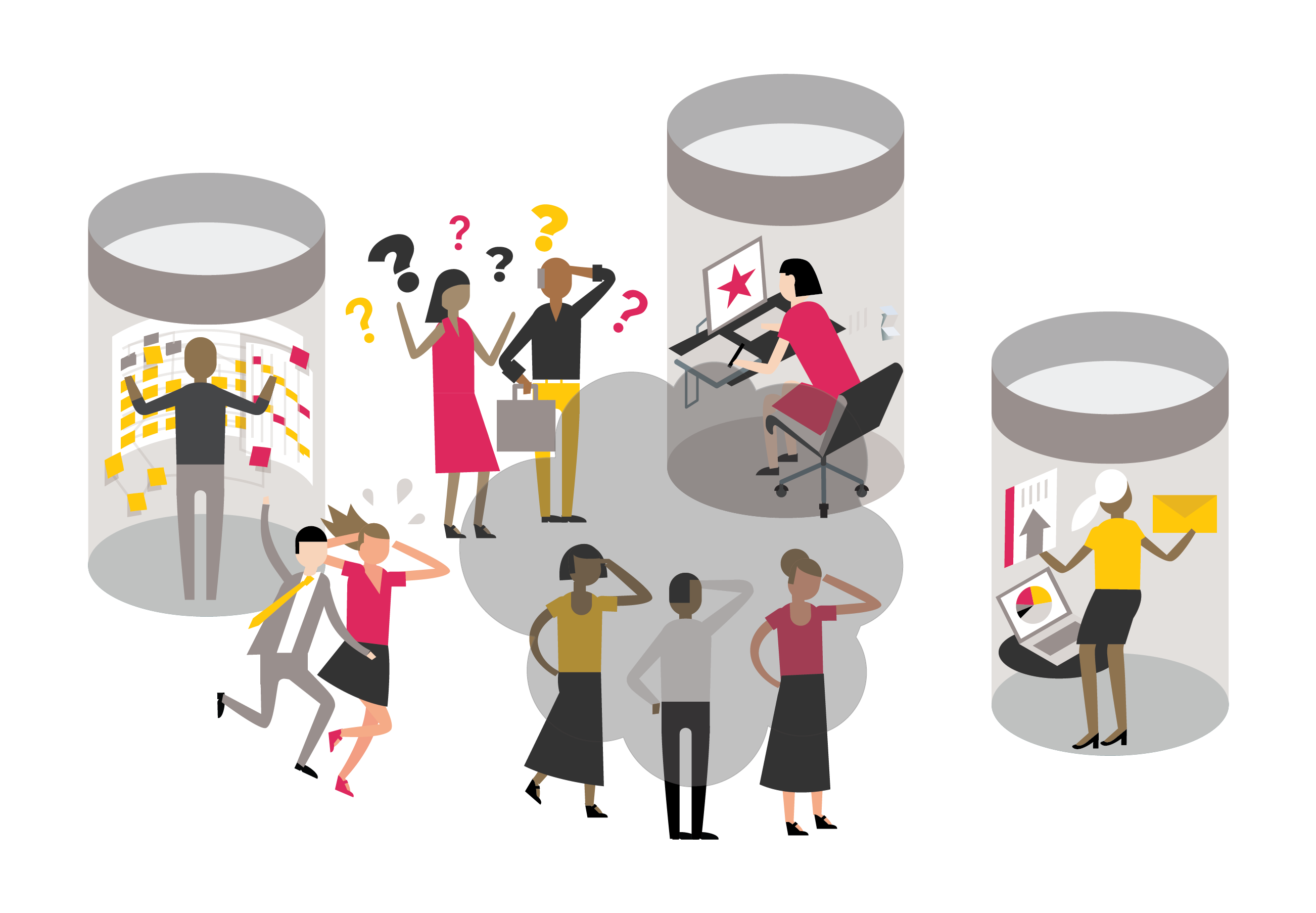Updated January 24, 2019
Organizational Adulting is a mindset. It is being an adult at work and treating everyone else as an adult too.
XPLANE has done a lot of culture mapping and uncovered many work behaviors and interactions that are less than adult – they are more often parental, adolescent, and even childish.

Many people tell us that their workplace would be much more efficient if only people would communicate more clearly. A high percentage of managers and leaders think their colleagues could be more committed and responsible, or more holistic in their decision-making. It is common for employees to say their team could be more effective if they were more open and honest, constructive, proactive, engaged, and committed.
What they are missing, what they want to see more of is Organizational Adulting.
Not adulting has created a lot of the problems that businesses have been trying to address. Such as:
- Silos and territorialism: People are afraid to give up resources and territory lest they give up power and control.
- Lack of innovation: People driven by a fear of making mistakes, taking risks, failing fast and learning from it.
- Lack of transparency: The left hand doesn’t know what the right hand is doing which leads to duplicate efforts, redundant systems, and teams.
- Lack of agility and adaptivity: Fear of becoming obsolete and unnecessary drives people to resist change and hold fast to bureaucracy.
- Failed transformation: Too many moving targets and change fatigue create skepticism and resistance to change, and a low belief in leadership’s commitments.

We all tolerate some non-adult behaviors at work. We accept them as part of normal work life and we even perpetuate them as they become the habits of the organization. I know I’ve done it, I fully admit it. Does it matter? Is not adulting all that bad?
In September the World Economic Forum released a new report saying there are two critical capabilities that all businesses will need to succeed in the future:
- Competitive digital technologies
- Sophisticated interpersonal skills
The fact is, the evolution of digital technologies is on course to outstrip the evolution of our interpersonal skills. It is time for all of us to start adulting at work. We need to elevate our ways of working. We have to be more innovative and creative, agile and adaptive, we have to have more empathy for our customers. We have to get out of our own way and start interacting like adults.
XPLANE is hosting a conversation about Organizational Adulting, and you are invited to join us. #orgadulting
Thank you to those who submitted feedback in our recent survey. We will take the top three challenges submitted and curate expert advice from our team and our network. We will also deliver a free webinar to show you tools you can use to tackle these challenges so you can start Adulting efforts in your organization. Check out our Organizational Adulting page for more information. As a thank you for completing our “Challenges” survey, one lucky winner received our fan box*, and our grand prize winner received a complimentary 90-minute visualization session.
*The fan box included our DNA for Change book, the discovery card deck, a Visual Thinking sketch book with drawing tips, and a specially designed T-shirt (total value of $75).

Follow this blog series if you’d like to continue the Organizational Adulting conversation and explore the various non-adult behaviors and workplace challenges with us:
- Introduction to Organizational Adulting: Insights That Lead to Better Ways of Working
- Organizational Adulting: Your Barriers + Our Insights = A Live Conversation
- Organizational Adulting: Divisive Workplace Behaviors and How to Overcome Them
- Organizational Adulting: Overcoming Apathy and Disengagement in the Workplace
Organizational Adulting: You Are What and How You Communicate
